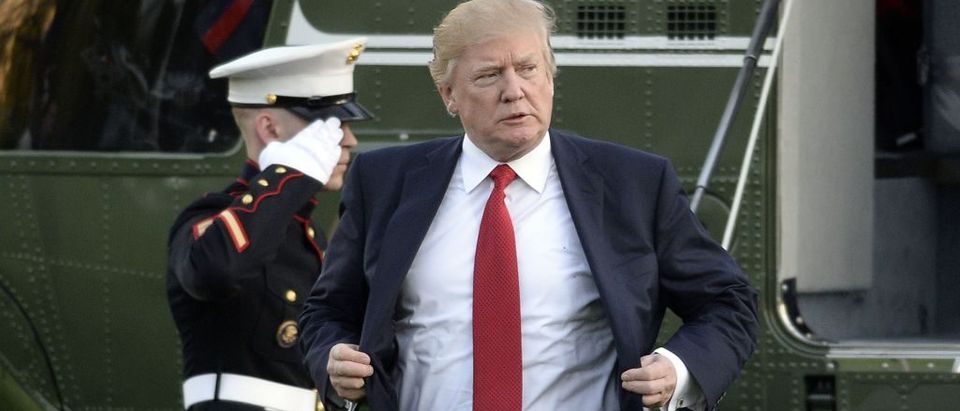One of President Trump’s signature campaign themes was “America First.” On the campaign trail, then-candidate Trump consistently emphasized how differently he stood on foreign policy from both many of his Republican primary opponents as well as Hillary Clinton. Yet just Thursday night, President Trump fired dozens of tomahawk missiles onto Baathist Syria’s airfields to the cheers of many neoconservatives he had so long alienated and the despair of many of his core longtime supporters.
Even in just these past few days I’ve seen cracks in the President’s supporter base that I haven’t ever seen before. Some of his most loyal supporters such as Ann Coulter and Laura Ingraham, among many others, have been having public meltdowns on social media. Millions of Americans indeed supported then-candidate Trump because they felt a deep resonance with his rhetoric on the campaign trail that he would avoid getting us entangled in Middle East conflicts and being the policeman of the world, and would instead put American security and interests as the prime concerns when deciding foreign policy.
Many of the President’s supporters believed that his campaign talk would mean that he would be in favor of a strongly non-interventionist policy. However a closer examination of the President’s policy positions over the years, whether on the campaign trail this past cycle, through his old tweets regarding Syria that have recently circled social media as ironic memes, or his public record last decade and prior, shows that in fact the President has always embraced a worldview that sought to avoid unnecessary conflict but still would be ready to show strength when appropriate and needed. “Peace through strength,” in the President’s words, would replace aggressive nation-building and democracy-spreading.
“Peace through strength” and “America First” are not, however, the non-interventionism that many of his supporters seem to have misunderstood it to be.
Non-interventionism is as old as the republic itself. George Washington emphasized the importance of avoiding foreign entanglements in his farewell address. Much of American foreign policy in the course of the 19th century consisted just of keeping other foreign powers away from American shores and spheres. However the non-interventionism of the days before electricity, airplanes, and nuclear missiles, let alone the Internet, is simply not possible in our modern world.
Like it or not, the world is now interconnected. The fact that we are able to operate in and invade countries literally all the around the world on short notice, let alone the increased ability of peoples to migrate and how our international trade channels connect the world, demonstrate that hiding in our shell is both impossible as well as foolish to try.
The President’s campaign-trail foreign policy instead questioned Iraq War Republican orthodoxy on our ability to truly spread democracy, arming foreign factions which we knew little about, and taking actions in conflicts without clear contingencies, exit plans, and coalitions.
This questioning was needed for an American people weary after over a decade and a half of continuous war with a worrisome current status quo. As the American people have been intimately reminded of this past decade, interventionism is costly in terms of money, resources, political capital, and human lives.
As the President’s missile strike demonstrated however, erring on the side of non-interventionism still means that we may have to act when the political and military calculus makes sense. While we aren’t in the situation room and do not have access to all of the intelligence that the President and his advisors have, nonetheless based on the public facts it seems that we sent a strong message that may drastically reduce incentives to commit crimes against humanity in the region in the future as well as tactically neutralize much of Baathist Syria’s ability to continue to commit such acts at the moment.
Soon enough the missile strikes will become history as new international diplomatic and security events occur. However, they remind many Americans of both the reality of the international geopolitical situation as well as the President’s real approach to these issues.
The President has shown so far that he undoubtedly will err on the side of non-interventionism rather than being trigger-happy when possible. However sometimes reducing the potential of future conflict means acting now. Many of the President’s supporters may have had a rude awakening these past few days to that, but for those who have been really paying attention it is both not a surprise and a welcome approach to the increasingly interconnected, and dangerous, world we live in.


